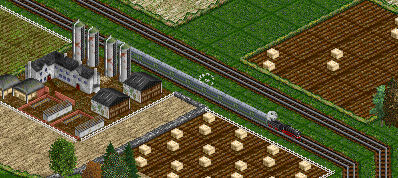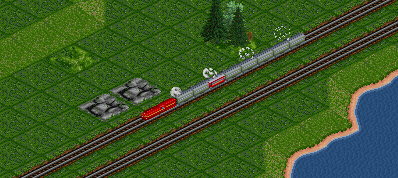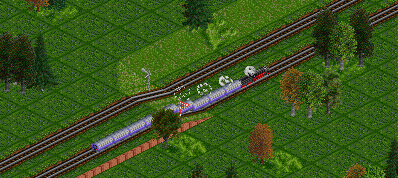The first long-distance coach in the set becomes available in 1925. The graphics receive an update later on before it is replaced with a newer coach type in 1950.
The first coach is based on - the class name in the readme file says so explicitly - on the all-steel "pike" coach. About 150 of them were built between 1926 and 1928 in numerous variants (first to third class in several combinations). There also is a dining car of this type, which is added automatically to trains once they have a certain length. It seems that this only works for the class 05, which is strange, as this one is not even available at the same time as the "pike" coaches.
Schürzenwagen (German wikipedia)
The second variant is introduced in 1935 and is based on a coach type that had optimized aerodynamics for high speeds up to 150 kph.
The long distance express train Rheingold uses special coaches exclusive to this train. In the set they can be created by refiting the standard long-distance coaches, as long as the train is headed by a class 01 or a class 18 steam engine.
Characteristics
|
|
passenger coach "pike" / streamlined |
| available by | 1925 / 1935 |
|---|---|
| capacity | 56 |
| load speed | 7 |
| top speed | 160 kph |
|
|
mail coach "pike" / streamlined |
| available by | 1925 / 1935 |
|---|---|
| capacity | 36 |
| load speed | 9 |
| top speed | 160 kph |
|
|
dining car "pike" |
| available by | 1925 |
|---|---|
| capacity | 56 |
| load speed | 5 |
| top speed | 160 kph |
| remarks | "pike" coach, only class 05 |
Images and screenshots

A class 01 with a fast train.

A class 05 with an express train that also has a dining car.

A class 18 with a long-distance express "Rheingold".
Usage
The long distance coaches are naturally suited for fast long-distance trains. They offer higher capacity than the local coaches, as well as a higher speed limit, but they need longer time in the stations to be loaded and unloaded. That should not matter much, as long-distance trains should not stop every other minute.
